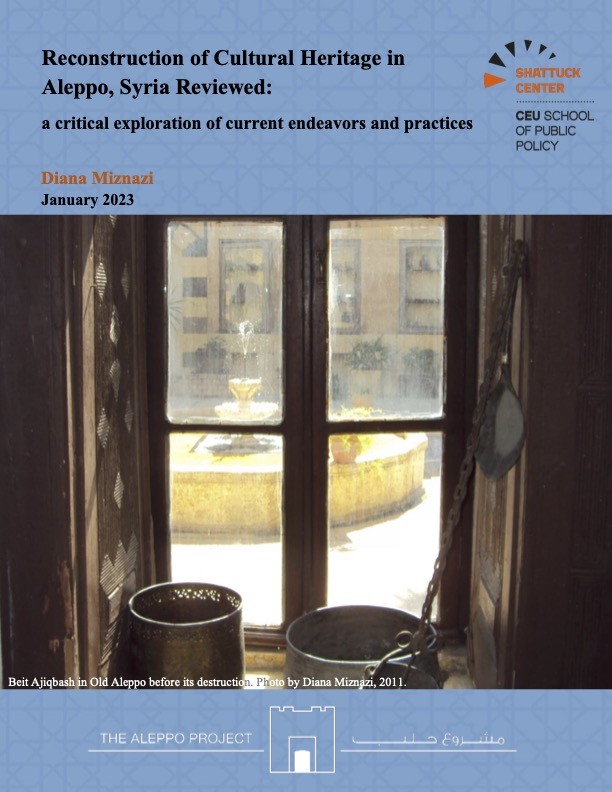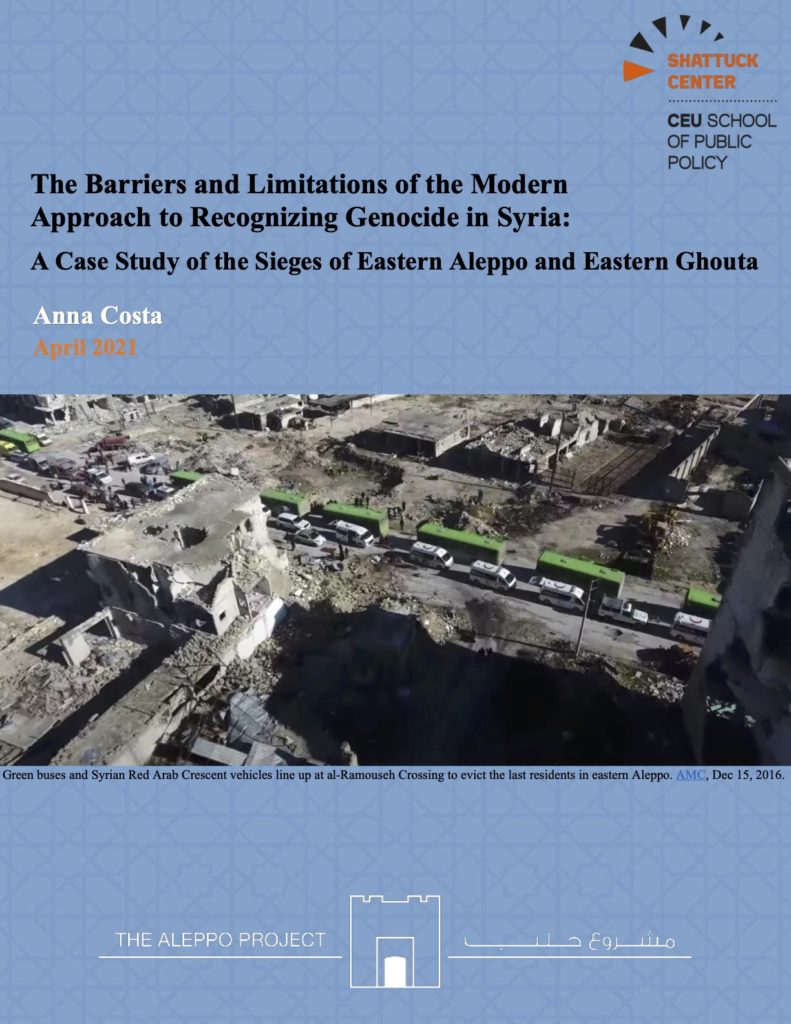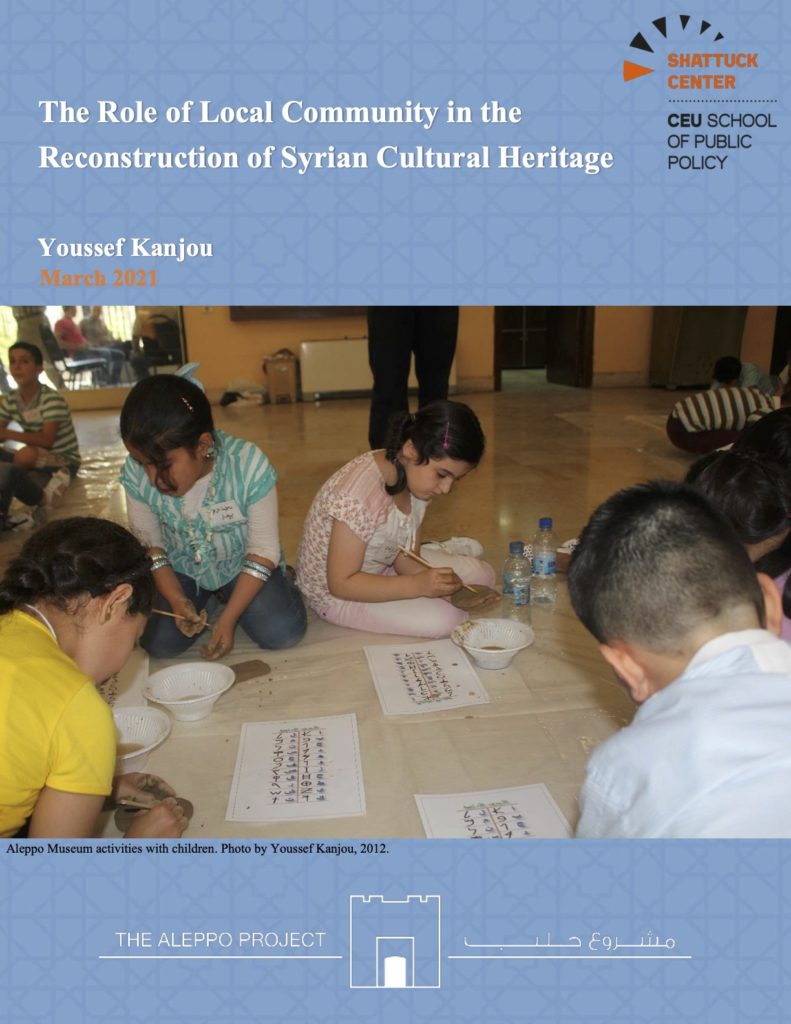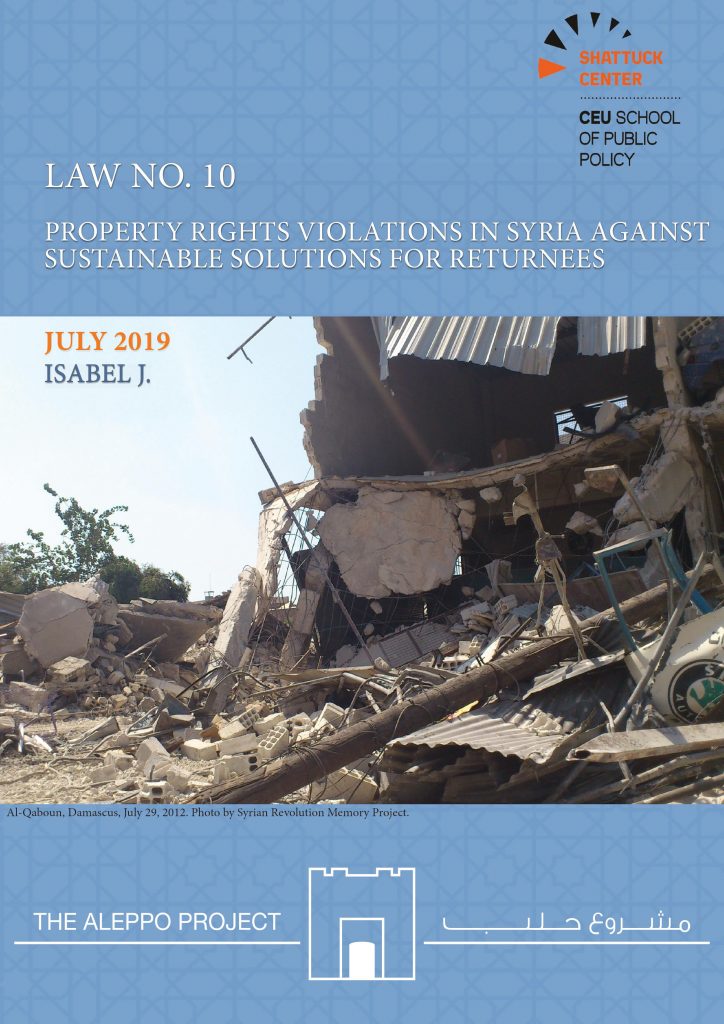These papers were presented at the 5th Lemkin Reunion, held in March 2019 and organized by the Shattuck Center at the CEU School of Public Policy in Budapest.
March 2019 marks eight years since people in a wide web of villages and cities across the Syrian landscape took to the streets in defiance of the Assad family’s rule. Initially responding with gunfire, imprisonment and torture, the regime’s strategy evolved into the carpet bombing and mass destruction of whole rural and urban communities, culminating in the forced transfer of all remaining residents from areas such as Ghouta and eastern Aleppo, which remain largely uninhabited. Although the fighting has ebbed, the war in Syria has not ended and a political settlement has not been reached. The near ten million displaced, mainly in harsh conditions in and around Syria, do not feel safe to return to their neighbourhoods and villages. However, the Syrian government has promulgated laws enabling the construction of development projects where displaced communities once resided with no or few guarantees of compensation for displaced property owners. One such project, Marota City, plotted over the demolished informal district of Basateen al-Razi, is already under construction. What will reconstruction under the current conditions serve? Under what conditions can reconstruction in Syria be equitable?
Each year the Shattuck Center hosts the Lemkin Reunion, a gathering named in honor of Raphael Lemkin, the Polish lawyer who lost his family in the Holocaust and first coined the word genocide. He campaigned tirelessly during his life to ensure that the crime of genocide was enshrined in international law. The Lemkin Reunion gathers policymakers involved in responding to atrocity crimes and assess the lessons they learned.
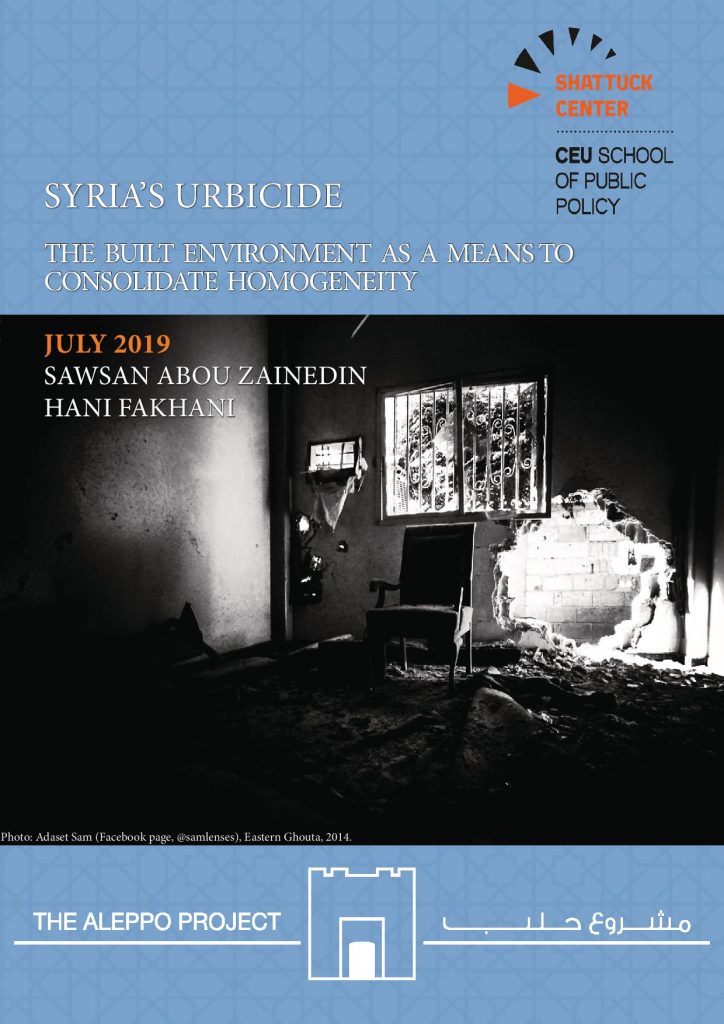
Syria's Urbicide: The Built Environment as a Means to Consolidate Homogeneity
by Sawsan Abou Zainedin and Hani Fakhani
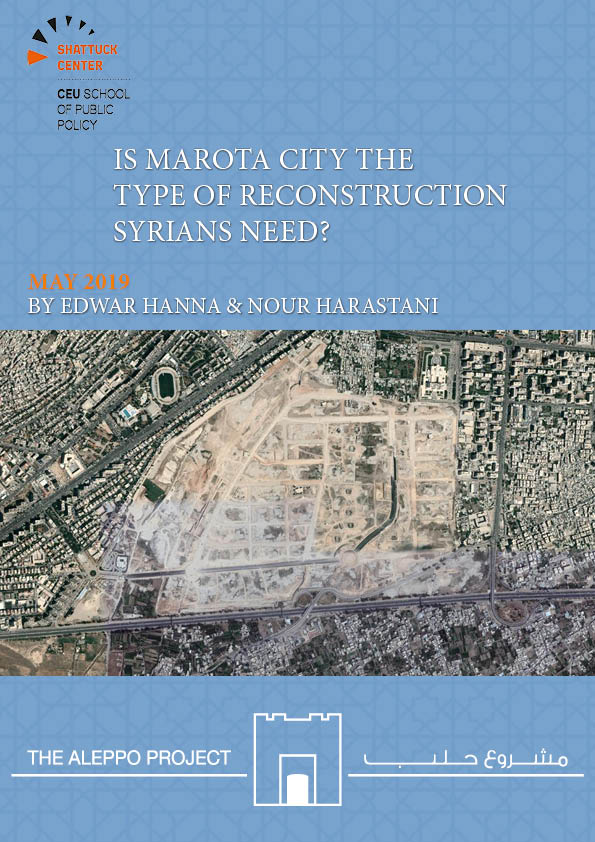
Is Marota City the Type of Reconstruction Syrians Need?
by Edwar Hanna and Nour Harastani
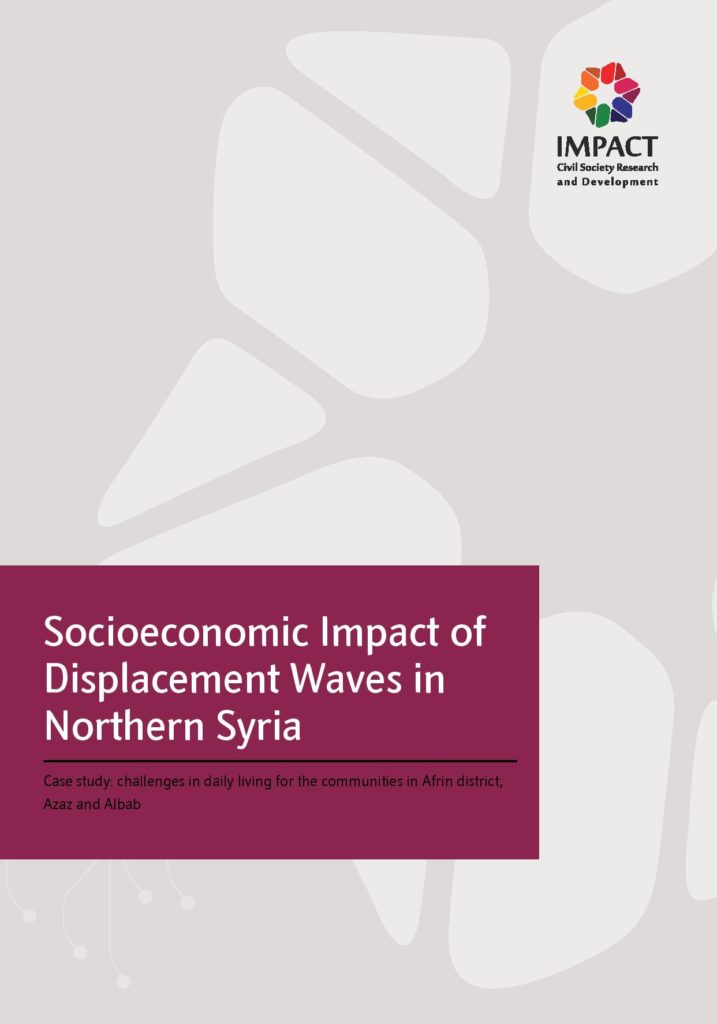
Socioeconomic Impact of Displacement Waves in Northern Syria
By Jelnar Ahmad, IMPACT
 The Aleppo Project
The Aleppo Project